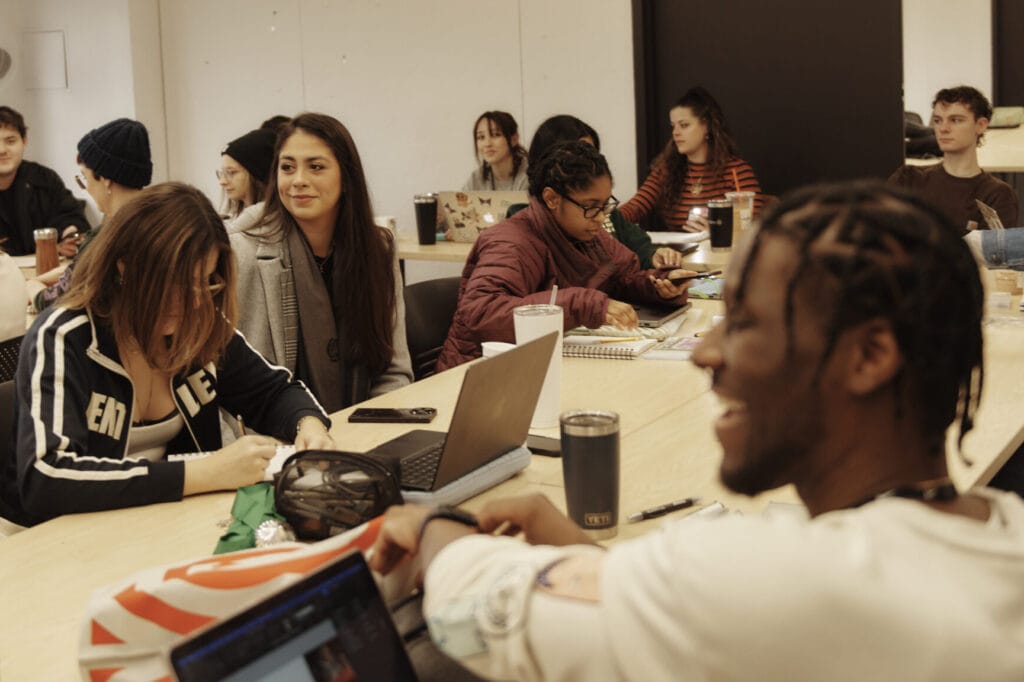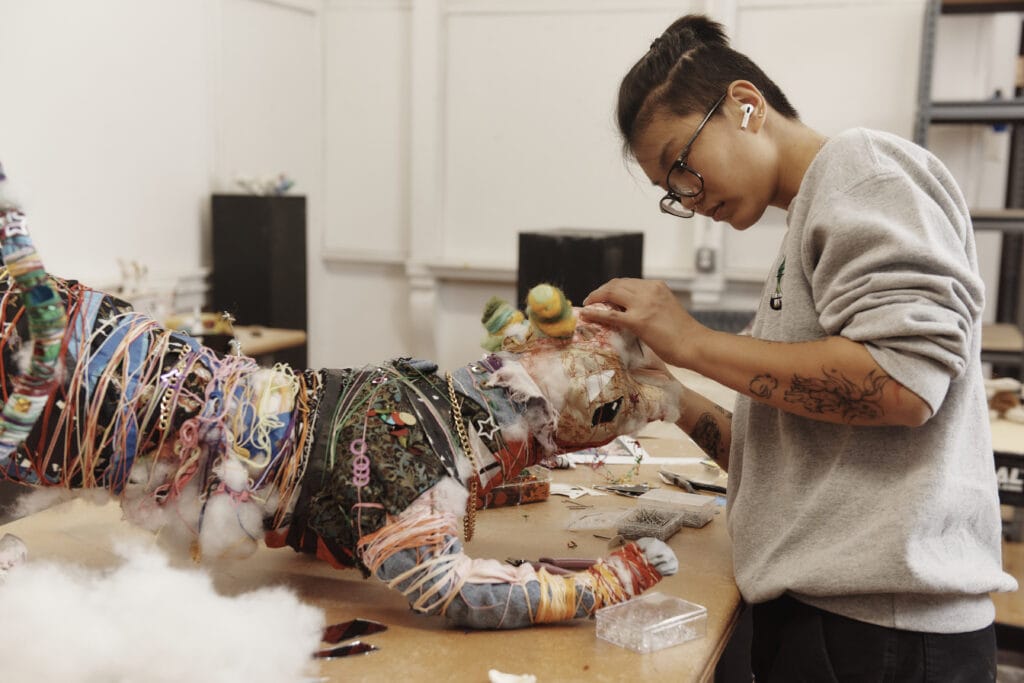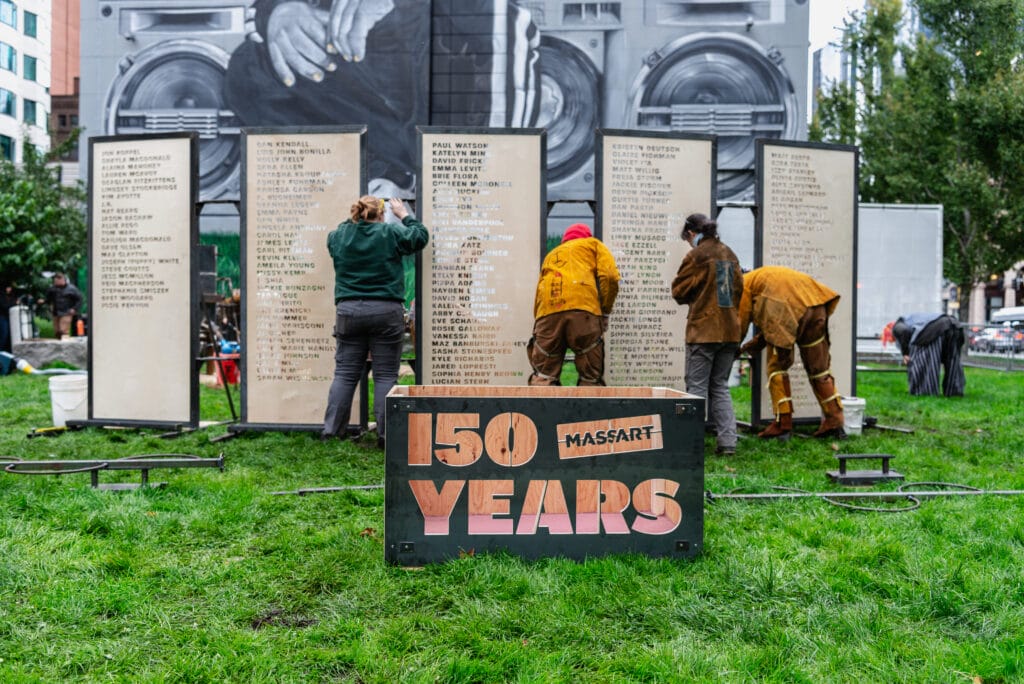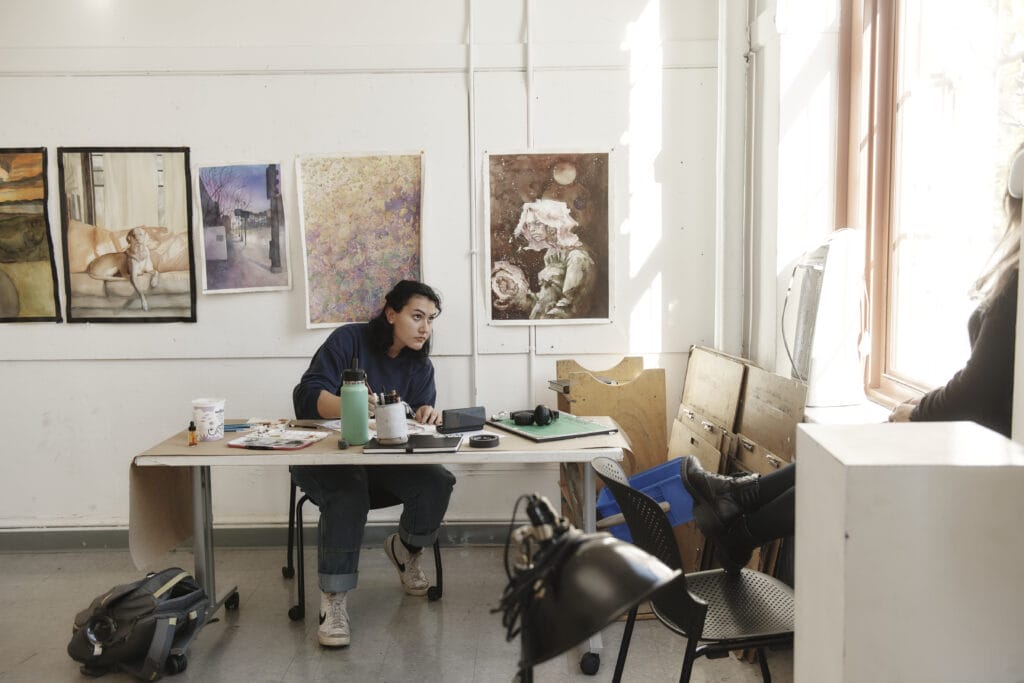Learn about obtaining Initial Licensure and preparing for the Massachusetts Tests for Educator Licensure (MTEL).
Our undergraduate Art Education students develop a critical, studio-centric approach to visual arts education.
Location: On Campus (Boston)
Format: In-person, Full Time
Length of Program: 4 years
Degree Awarded: Bachelor of Fine Arts in Art Education
Art Education students develop the skills to become artists and teachers. Surrounded by the rich artistic environment of MassArt, students can choose to either have a studio specialization or to learn from a diverse breadth of studio classes throughout campus. Students on either path also develop their creative studio practice through the department’s sequence of interdisciplinary studio courses.
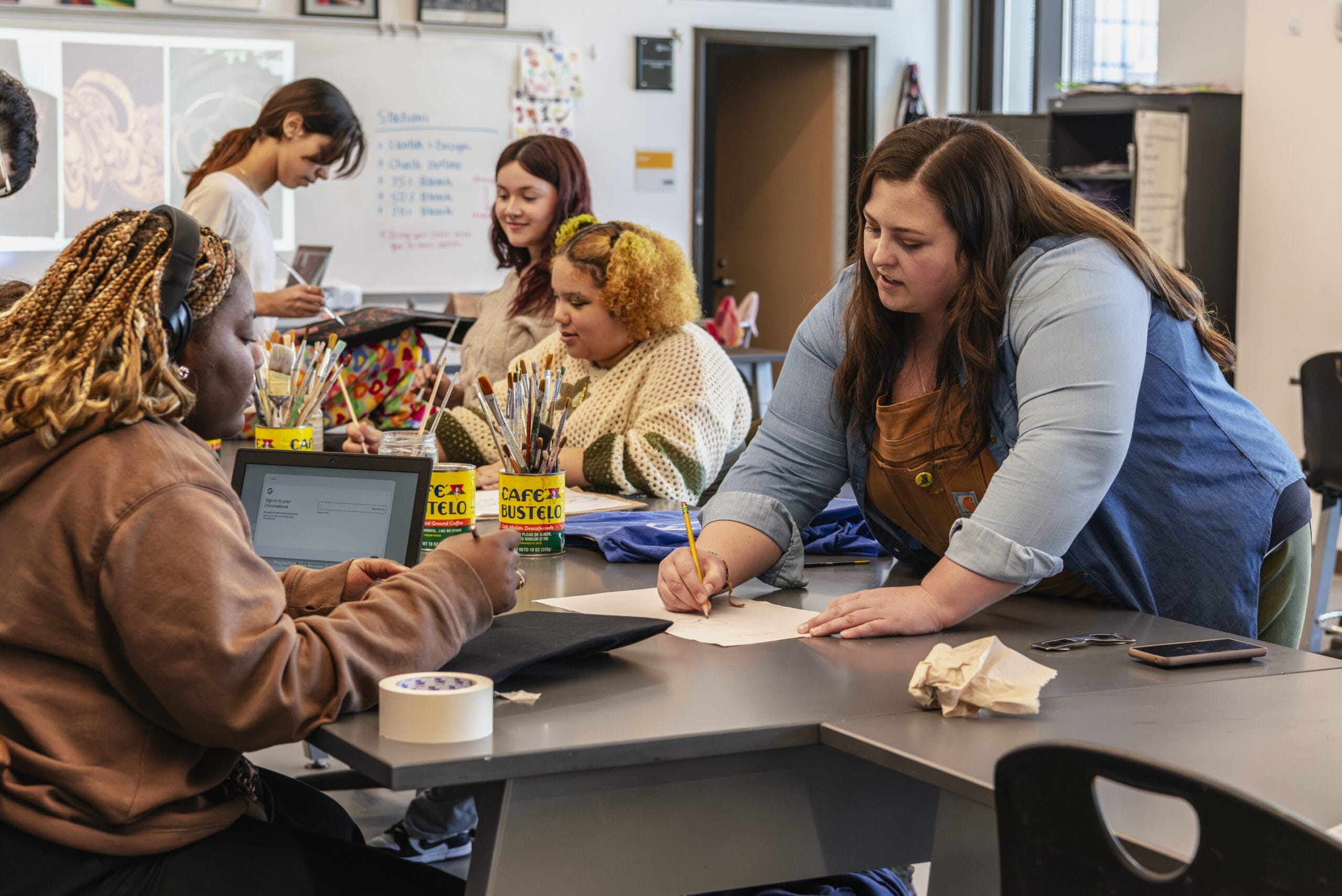

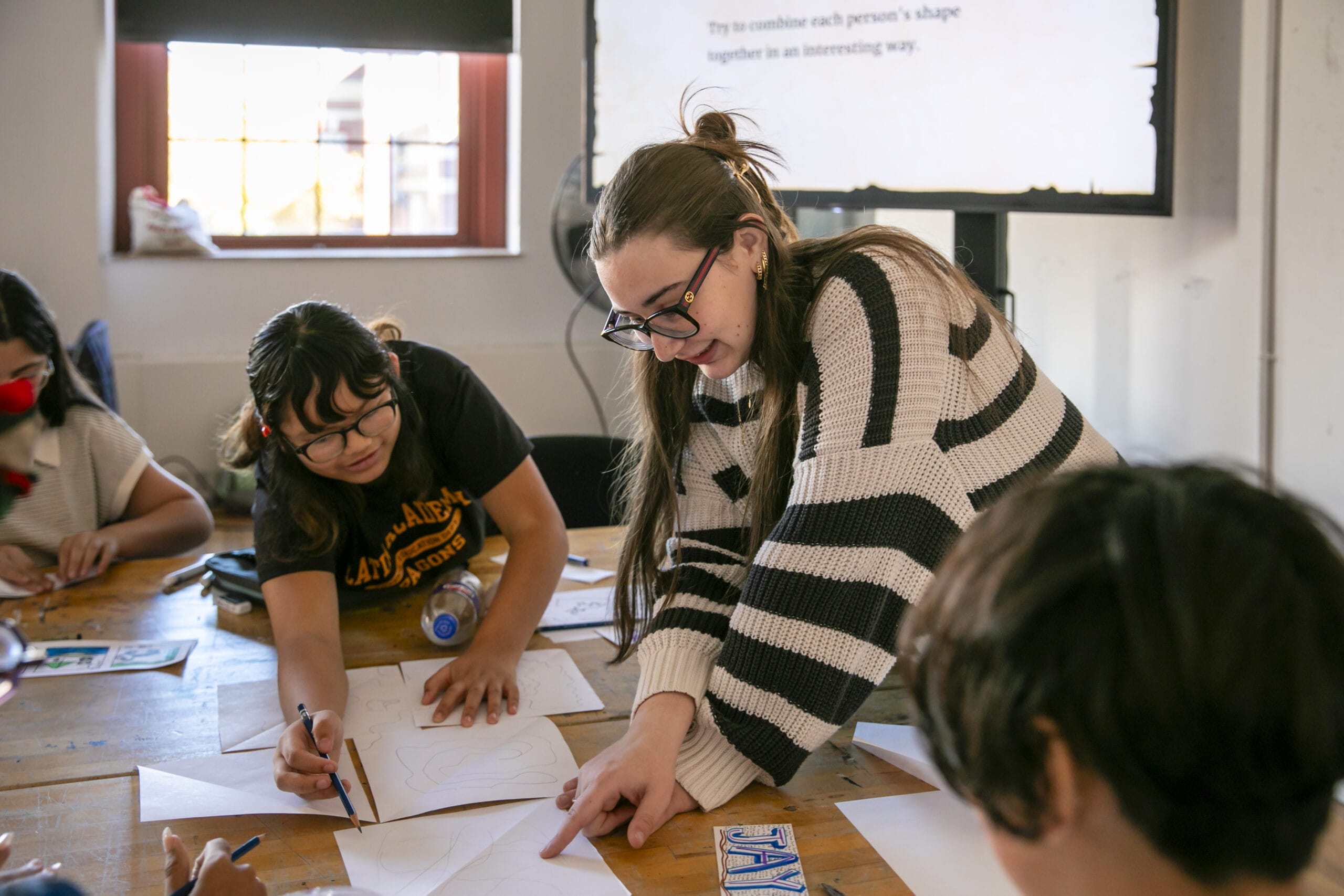
Youth Programs Comics and Characters class. Photo by Damian Hickey
What You’ll Learn
In classes, students explore theories of human development and the nature of art making, and develop approaches to the diverse needs of learners. Courses include regular visits to a variety of educational and art settings, familiarizing students with a wide range of teaching and artistic contexts, including public schools, after-school programs, alternative programs, art spaces, and community centers, museums, galleries, and artists’ studios.
Students also have the opportunity to take courses that focus on community engagement or on curatorial design, where they develop exhibitions of local artists and create educational materials for the public.
Saturday Studios
Practical experience is at the heart of the MassArt Art Education program. Our renowned Saturday Studios Program allows students to gain supervised and supported hands-on experience as educators.
School-Based Practicum or Internship
BFA students are also required to do a supervised practicum or internship. Students interested in getting endorsed for an initial license in visual arts teaching, select the school-based practicum. Students interested in community, museum or gallery settings select internships in those settings.
BFA Learning Outcomes
Students who complete the Art Education BFA program are expected to be able to demonstrate the following learning outcomes.
- Students will develop expertise in studio practices, learning and teaching
- Students will develop the dispositions (skills, inclination, alertness) as artist-educators
- How areas of expertise and roles interact dynamically.
- How to keep students’ development and well-being at the core of their educational practice.
- To see their identity and position as artist-educators as professionals and leaders.
- How to nurture their own development through reflective practice over time.
- How models and theories interact with and support practice.
- How to respond sensitively to every individual’s universal, group and unique characteristics.
- How meaning and meaning-making are embodied and embedded in contexts (language, behavior, and culture).
- How to seek, nurture, and use intuitive, observed, experienced, and logical connections and associations to develop understanding.
- How to select and use art-making, teaching, and scholarly research methods to suit purpose, context, and audience.
- How quality thinking requires not only skills, but also attitudes that drive engagement and focus attention on opportunities in contexts.
Career Outcomes
By graduation, Art Education students are culturally responsive educators who have developed critical skills, strategies, and approaches that address the diverse needs of learners. Our students catalyze inclusive, active, and activist learning for all, across educational contexts and environments.
Art Teacher, Educator, Gallery Curator, Art Therapist, Art Director, Freelance Artist, Art Consultant, Art Conservator, Exhibition Designer, Art Writer/Critic
Harvard Art Museums, Museum of Fine Arts Boston, Griffin Museum of Photography, The Currier Museum of Art, Brookline Arts Center, Roger Williams Park Zoo, Art Resource Collaborative for Kids (ARCK), Cape Ann Art Haven, Dell Technologies, Needle and Knot

Youth Programs Saturday Studios Printmaking lass for 9th-12th graders. Photo: Damian Hickey


Youth Programs Saturday Studios Studio Explorations class. Photo: Damian Hickey

